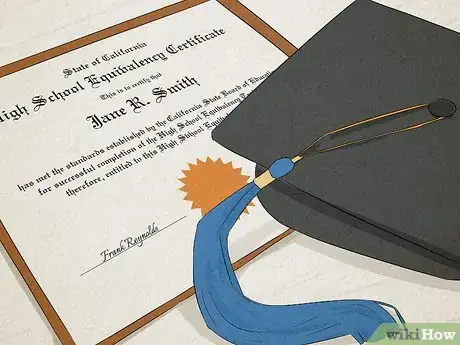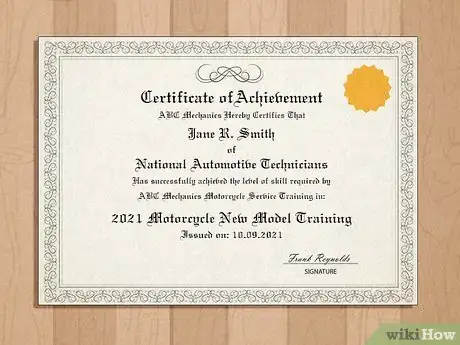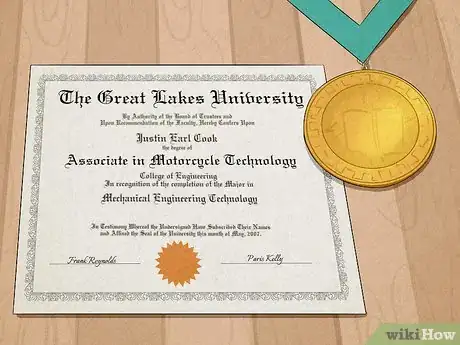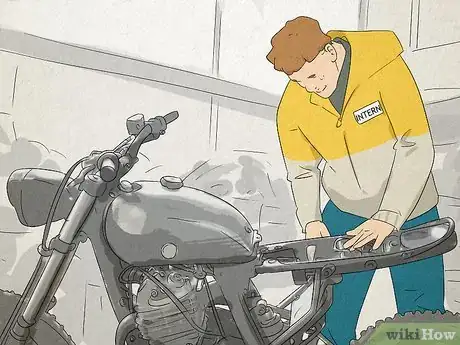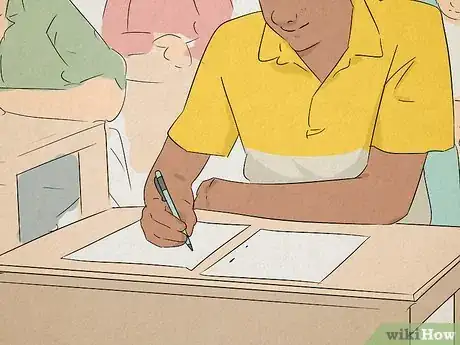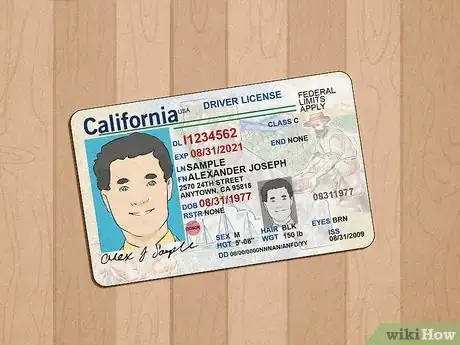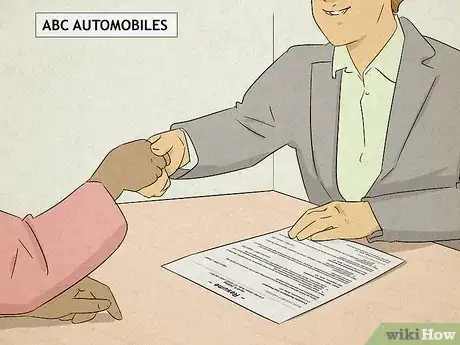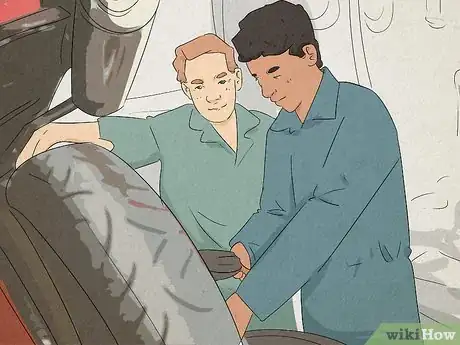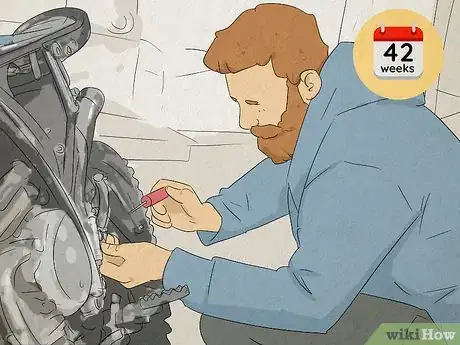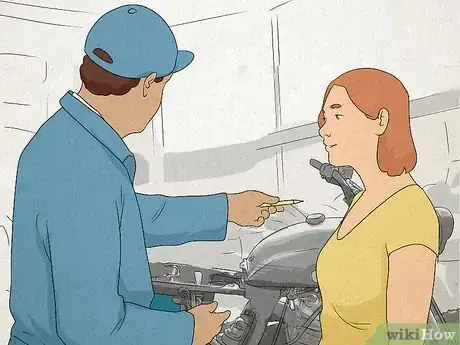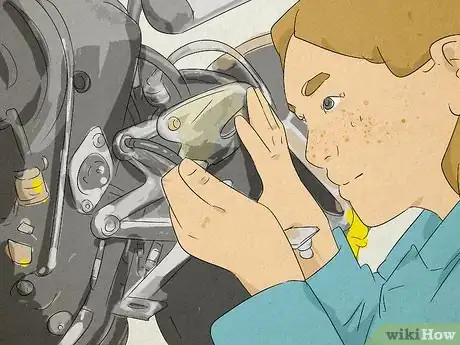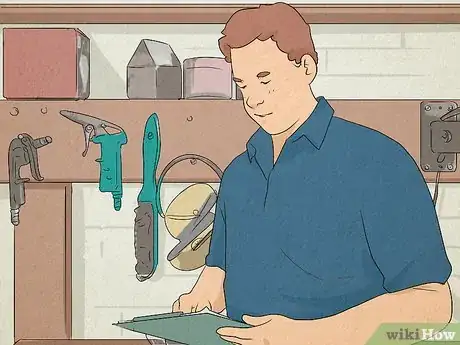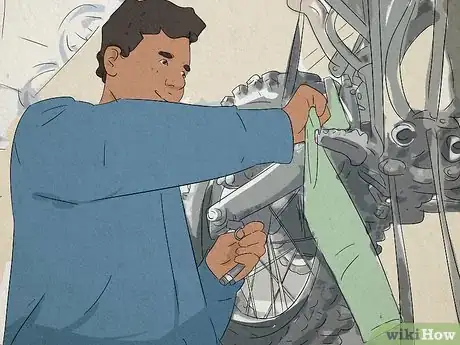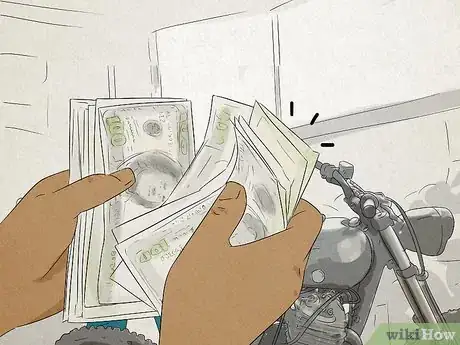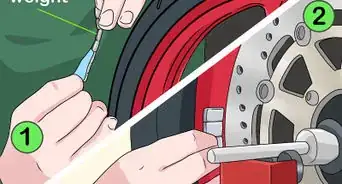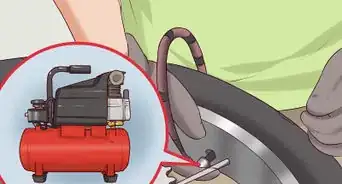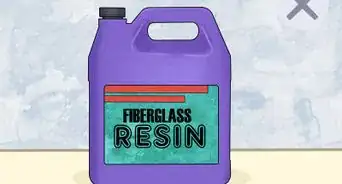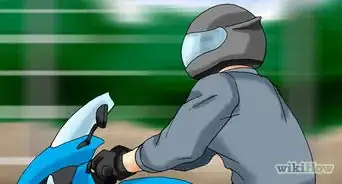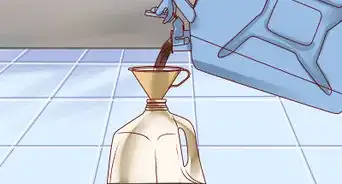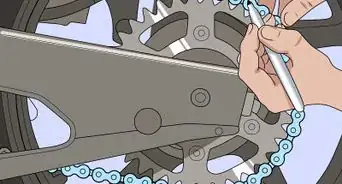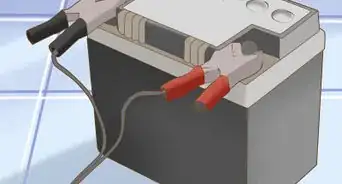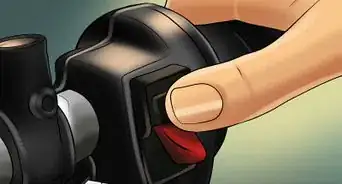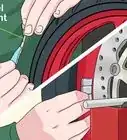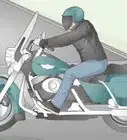This article was co-authored by wikiHow Staff. Our trained team of editors and researchers validate articles for accuracy and comprehensiveness. wikiHow's Content Management Team carefully monitors the work from our editorial staff to ensure that each article is backed by trusted research and meets our high quality standards.
There are 8 references cited in this article, which can be found at the bottom of the page.
This article has been viewed 8,777 times.
Learn more...
A motorcycle mechanic is responsible for maintaining and repairing a variety of different motorcycles and keeping them in safe, working order. If you're passionate about motorcycles and enjoy working with your hands, then this may be the perfect career choice for you! Below, we’ve put together a bunch of helpful answers to some of the questions you may have about getting into the field.
Steps
What education do I need to become a motorcycle mechanic?
-
1A high school diploma or GED is the minimum requirement. You need one of these certifications to qualify you for further training programs. Either complete high school and get your diploma or get your GED if you didn’t complete high school.[1]
- While you probably won’t get hired as a mechanic without further schooling, you can start looking for work in garages or repair shops after completing high school or your GED.
- Working in any role in a garage or repair shop can help you save money to pay for further training, introduce you to the business, and give you critical work experience to put on your resume.
-
2Complete a motorcycle mechanic training certification program. Search for such a training program at a trade school or technical school near you and register for the classes. Finish all the classroom-based instruction and hands-on coursework to earn a certificate in motorcycle mechanics.[2]
- If you live in the United States, look for a training program accredited by The National Automotive Technicians Education Foundation (NATEF).
- Find NATEF-accredited programs by visiting: http://www.aseeducationfoundation.org/find-a-program.
- You can find motorcycle mechanic training programs online. But, keep in mind that they don’t give you any hands-on experience.
Advertisement -
3Get an associate’s degree for more career prospects. Some junior colleges or community colleges offer associate’s degrees in motorcycle technology or motorcycle repair. This additional training could make you a more attractive employee for some businesses. Check if local colleges near you offer such programs and sign up to earn a degree that could open more doors for your career.[3]
- Associate's degrees usually take 2 years of full-time study.
- If no schools near you offer specialized motorcycle tech or repair degrees, look for a degree program in mechanical engineering, mechanical technology, small engine mechanics, or similar fields.
- Speak with college advisors to determine which program is best for a motorcycle mechanic.
- If you’re interested in opening your own shop one day, it would also be helpful to take some business and management classes while you’re in school.
Do motorcycle mechanics need any other licenses?
-
1In the US, some states require motorcycle mechanics to pass a state exam. Check if your state requires special licensing to get a mechanic job. If your state does require you to pass a test, try to take this as soon as possible after you complete your degree program so you can work right away. Use the knowledge you've gained in your training to pass this test and get licensed.[5]
- The test varies from state to state, and usually asks questions about motorcycle operating systems, engines, fuel systems, and general repair questions.
- States may also not have a specialized motorcycle test, and might instead require a generalized mechanic test. If you've completed educational programs in motorcycle repair and studied, you should be able to pass this test without much trouble.
- See if your state provides practice exams to increase your chances of passing the test.
- Some states also require you to take additional classes to get a mechanic’s license.
-
2Get a motorcycle license or endorsement so you can test-drive bikes. A motorcycle license or endorsement isn't a requirement for most mechanic jobs, but a shop may not hire you if you don't know how to ride. Check with the licensing offices where you live to find out what the process for getting a motorcycle license is and complete the requirements.[6]
- A motorcycle endorsement is an addition to your regular driver's license indicating that you're also qualified to operate a motorcycle.
- In most states, the process is similar to getting a driver's license. You have to pass a written test and then a road test to demonstrate that you know how to operate a motorcycle. After this, you receive a motorcycle endorsement on your regular license or a specialized motorcycle license.
- Some states also require additional educational classes like driver's ed before you're qualified to get an endorsement. Complete any necessary programs that your state requires.
How do I get a job fixing motorcycles?
-
1Look for entry-level motorcycle mechanic jobs. Once you finish your certification and/or degree programs, you’re qualified to work as an entry-level motorcycle mechanic. Search local job sites and boards or contact local mechanic shops to find openings. Submit your resume to apply for any you find to land your first job![7]
- If you have a degree rather than just a certificate, you may get hired at a higher level or pay rate.
- If you did internships or worked at a garage or repair shop prior to completing your education, follow up with the people who still work there to see if they might hire you back as a mechanic.
-
2Take manufacturer-specialized training to improve your credentials. This training gives you in-depth experience working on individual motorcycle brands to become a specialist. You can use this specialized training to negotiate a higher salary or start working for one of those manufacturers to earn more money. Look for manufacturer-specialized courses to advance your career.[8]
- Sometimes local technical schools or community colleges offer specialized manufacturer training courses. The manufacturers themselves may also offer classes. See what courses are available in your area.
What skills do I need to be a motorcycle mechanic?
-
1Strong customer service skills. Motorcycle mechanics have to deal with customers on a day-to-day basis when they bring their motorcycles in to get fixed. Make sure you’re able to courteously and clearly discuss problems and explain repairs to customers and are able to answer their questions.[10]
- Before becoming a motorcycle mechanic, you can learn good customer service by working in many different types of jobs. For example, you could try to get a job in any type of retail store to practice dealing with customers.
-
2Good dexterity. As a motorcycle mechanic, you need good hand-eye coordination and a steady hand to deal with small parts and precise tasks. This ensures you can handle tools, disassemble and assemble engine parts, and connect and attach various other motorcycle components.[11]
- You can learn a lot of this and improve your dexterity as it applies to motorcycle mechanics while you complete your training. If you pass your courses, your dexterity should be good enough to be a mechanic.
-
3Organizational skills. When you work in a motorcycle repair shop, you’re responsible for keeping your workspace organized and clean. This is to ensure safety and accountability for different parts and tools.[12]
- You can improve your organizational skills by making to-do lists and keeping all your personal spaces clean and organized at home.
References
- ↑ https://www.bls.gov/ooh/installation-maintenance-and-repair/small-engine-mechanics.htm#tab-4
- ↑ https://www.automechanicschooledu.org/how-to-become-a-motorcycle-mechanic/#education
- ↑ https://www.automechanicschooledu.org/how-to-become-a-motorcycle-mechanic/#education
- ↑ https://www.vocationaltraininghq.com/how-to-become/motorcycle-mechanic/
- ↑ https://www.vocationaltraininghq.com/how-to-become/motorcycle-mechanic/
- ↑ https://drivinglaws.aaa.com/tag/motorcycle-licenses/
- ↑ https://www.automechanicschooledu.org/how-to-become-a-motorcycle-mechanic/#education
- ↑ https://www.bls.gov/ooh/installation-maintenance-and-repair/small-engine-mechanics.htm#tab-4
- ↑ https://www.uti.edu/programs/motorcycle/faqs
- ↑ https://www.bls.gov/ooh/installation-maintenance-and-repair/small-engine-mechanics.htm#tab-4
- ↑ https://www.bls.gov/ooh/installation-maintenance-and-repair/small-engine-mechanics.htm#tab-4
- ↑ https://www.bls.gov/ooh/installation-maintenance-and-repair/small-engine-mechanics.htm#tab-4
- ↑ https://www.uti.edu/programs/motorcycle/careers
- ↑ https://www.jobbank.gc.ca/marketreport/outlook-occupation/14873/ON;jsessionid=83EB300AFC171E6C9FC4F9FBCA038377.jobsearch74
- ↑ https://www.bls.gov/oes/2018/may/oes493052.htm
